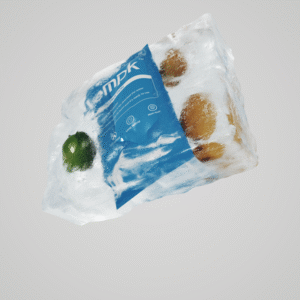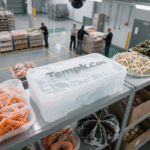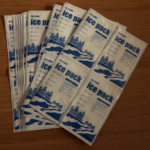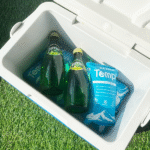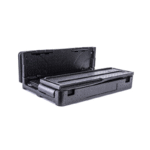Where to Buy Dry Ice Packs in 2025—Best Options & Tips
If you’re deciding where to buy a dry ice pack in 2025, here’s the short answer: you can source a dry ice pack locally (grocery or gas suppliers), online (cold‑chain retailers), or via carrier add‑ons during shipping. This guide shows you the fastest options, price ranges, safety must‑dos, and how to size a dry ice pack for 24–72+ hours so your frozen goods arrive perfect. (This unified guide synthesizes and improves your three drafts.)
-
Local vs. online: Where to buy a dry ice pack near me with same‑day pickup
-
Sizing & duration: How to choose a dry ice pack for frozen food shipping
-
Costs: Typical dry ice pack price per pound and how to save
-
Safety: Simple dry ice handling safety rules anyone can follow
-
Trends: What’s new in 2025 for dry ice and cold chain
What is a dry ice pack and when should you use it?
Bottom line: A dry ice pack keeps contents frozen around −78 °C without liquid mess, making it ideal for ice cream, biologics, and anything that must stay rock‑solid for 24–72+ hours. It outperforms gel packs (which hold fridge temps, not frozen) and pairs best with a high‑quality insulated shipper.
In plain terms: Think of a dry ice pack like a tiny, power‑free deep freezer. It turns straight from solid to gas, so your box stays dry. Use it when “still cold” isn’t enough—like mailing frozen desserts or transporting lab samples. For mixed loads, place the dry ice pack above frozen items and gel packs around chilled items to create two zones.
Dry ice pack vs. gel pack—what should you pick?
If your goal is frozen, choose a dry ice pack. If you only need refrigerated (2–8 °C), gel packs are simpler and easier to handle. Many shippers combine both: dry ice on top for frozen items, gel packs for the rest. When in doubt, match the pack to the strictest temperature requirement first.
| Cooling Method | Typical Range | Typical Duration | What it means for you |
|---|---|---|---|
| Dry ice pack | ≈ −78 °C | 24–72+ hours (with good insulation) | Keeps contents frozen. No meltwater. Needs venting. |
| Gel/water pack | 0–8 °C | 12–48 hours | Keeps contents cool, not frozen. Easier to handle. |
| Hybrid (dry ice + gel) | Dual zones | Trip duration dependent | Supports mixed shipments (frozen + chilled) in one box. |
Practical tips you can use today
-
Block vs. pellets: Blocks last longer; pellets surround items better.
-
Fill voids: Stuff empty space with paper/liners to slow sublimation.
-
Pack top‑down: Cold gas falls—put the dry ice pack above frozen goods.
Real case: A seafood shop shipped 5 kg of prawns overnight using a 10 lb dry ice pack in a thick EPS cooler. Contents arrived fully frozen, and the shop cut costs by sourcing the dry ice pack locally the morning of shipment.
Where to buy dry ice packs (near you and online)?
Quick answer: You can buy a dry ice pack at large groceries/big‑box stores, industrial gas/welding suppliers, specialized cold‑chain retailers online, or add dry ice through carrier cold‑shipping services when you book a label.
How to choose fast:
-
Need it today? Call nearby supermarkets or welding/gas suppliers first.
-
Need special sizes or a kit? Order from a cold‑chain e‑commerce store.
-
Already shipping overnight? Ask your carrier about adding a dry ice service.
Source comparison at a glance
| Source | Availability | Typical Cost | Best For | Heads‑up |
|---|---|---|---|---|
| Grocery & big‑box | Same‑day, many cities | ~$1–$3/lb | 1–10 lb quick buys | Call ahead; bring a cooler. |
| Gas/welding suppliers | Regional, business hours | Often lower in bulk | 20–50 lb regular needs | May require minimums; weekday pickup. |
| Online cold‑chain retailers | Nationwide delivery | Product + shipping | Specialty sizes/kits | Plan delivery; someone must receive. |
| Carrier add‑on (during shipment) | Where service exists | Service‑based | One‑stop compliance | Pay a premium; best for critical loads. |
How do I choose the right dry ice pack for my route?
Essentials first: Define duration, temperature, container, and safety. A dry ice pack only performs as well as the insulation around it.
-
Duration: Rough rule for a mid‑size cooler: ~5 lb per 24 h. Hot climates or thin boxes need more.
-
Format: Blocks for longevity; pellets/slices for coverage; sheets for small boxes.
-
Insulation: Upgrading the shipper can double hold time.
-
Safety add‑ons: Favor kits with vents, labels, and clear instructions.
Sizing cheat sheet (starting points, adjust to your box)
One‑minute selector (interactive checklist)
-
Must it stay frozen the whole trip? If yes → dry ice pack.
-
Trip > 24 hours? Increase weight or upgrade insulation.
-
Box feels “roomy”? Add void fill to slow gas loss.
-
Packing both frozen and chilled? Create two zones (dry ice upper, gel lower).
How much does a dry ice pack cost in 2025?
Expect a dry ice pack to cost roughly $1–$3 per pound at retail; bulk rates are lower. Online options add shipping and packaging, while carrier services charge premiums for compliance and handling.
| Scenario | Qty | Approx. Cost | Why choose it |
|---|---|---|---|
| Grocery same‑day | 5–10 lb | $7–$20 | Fast, local, simple. |
| Welding/gas supplier | 20–50 lb | $20–$60 | Best unit price; reliable supply. |
| Online specialty kit | Varies | Product + courier | Exact sizes, pro packaging. |
| Carrier cold‑ship add‑on | By service | Premium | One‑stop + regulatory support. |
Money‑savvy tip: Co‑buy with a partner, or invest in better insulation to use less dry ice pack for the same route.
How do I handle a dry ice pack safely?
Treat a dry ice pack with respect: it’s extremely cold and vents CO₂.
-
Wear gloves/tongs. Frostbite happens fast on contact.
-
Vent the container. Never seal air‑tight; pressure can build.
-
Transport smart. Crack a window; store away from passengers.
-
Dispose safely. Let it sublimate outdoors in a ventilated spot.
2025 dry‑ice & cold‑chain developments and trends
What’s new: As of 2025, demand for e‑commerce frozen goods and clinical logistics keeps rising. You’ll see more encapsulated dry ice packs, hybrid PCM + dry ice designs for longer holds, and reusable insulated shippers that cut packaging waste and total cost per trip. Supply is broader, delivery faster, and options more modular for different route lengths.
Latest at a glance
-
Safer packs: Built‑in vents and clearer labels reduce handling risk.
-
Longer holds: Hybrids stretch beyond typical 72‑hour windows.
-
Greener choices: Reusables reduce single‑use foam and plastics.
Market takeaway: More choices at stable pricing, but local availability can still fluctuate. Always have a Plan B supplier for peak seasons.
FAQs
Q1: How long does a dry ice pack last?
Most setups hold 24–48 hours; high‑end insulation and more ice can stretch beyond 72 hours. Size to your route, not a generic claim.
Q2: Can I reuse a dry ice pack?
CO₂ dry ice evaporates, so you’ll buy new each time. Reusable “ultra‑cold” PCM packs exist, but they require ultra‑low freezers to charge.
Q3: Is a dry ice pack safe with food?
Yes—keep food wrapped and avoid direct contact to prevent freezer burn. Always allow the cooler to vent.
Q4: Can I fly with a dry ice pack?
Airlines commonly allow small amounts when properly labeled and vented. Check your carrier’s limits and place the label outside the package.
Q5: How much dry ice pack do I need?
Start around 5 lb per 24 h for a medium cooler and adjust for box quality, ambient heat, and payload mass.
Summary & recommendations
Key points: Buy a dry ice pack where speed and reliability meet your need—local for same‑day, suppliers for bulk, online for specialty kits, or carrier add‑ons for one‑stop compliance. Size by duration, improve insulation, and follow safety basics. That’s how your shipment stays truly frozen.
What to do next: Decide your target hours, pick a source (local vs. online), get a vented shipper, and follow the sizing cheat sheet. Need a second opinion? Share your route and payload—our team will right‑size the dry ice pack and box in minutes.
About Tempk
We are cold‑chain specialists focused on practical outcomes: reliable temperature hold times, fit‑for‑purpose packaging, and clear handling guidance. Our portfolio includes dry ice pack kits, reusable gel and ultra‑cold PCM options, and insulated shippers validated for 24–96‑hour lanes. We emphasize reusability and right‑sizing to cut waste and cost.






